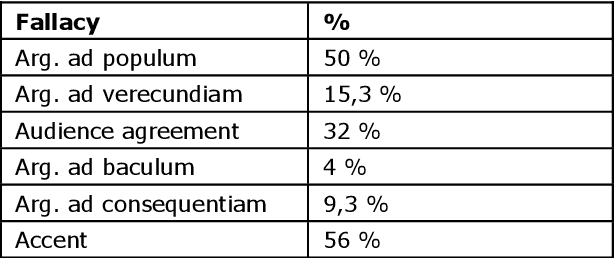Unveiling the link between logical fallacies and web persuasion
Paper and Code
May 09, 2013


In the last decade Human-Computer Interaction (HCI) has started to focus attention on forms of persuasive interaction where computer technologies have the goal of changing users behavior and attitudes according to a predefined direction. In this work, we hypothesize a strong connection between logical fallacies (forms of reasoning which are logically invalid but cognitively effective) and some common persuasion strategies adopted within web technologies. With the aim of empirically evaluating our hypothesis, we carried out a pilot study on a sample of 150 e-commerce websites.
* 6 pages, 3 figures, in proceedings of the WebSci'13 Conference,
Paris, 2013
 Add to Chrome
Add to Chrome Add to Firefox
Add to Firefox Add to Edge
Add to Edge